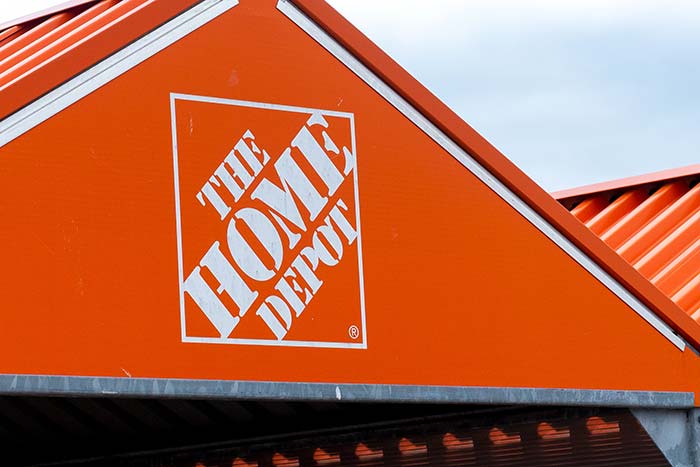With over 2,300 stores across North America, Home Depot (NYSE: HD) is a household name in the home improvement world. The retail giant sells everything you might need to fix up your home – from paint and lumber to appliances and tools – and has become the go-to place for professionals and DIY enthusiasts alike.
Looking at its stock chart, we can see it’s been on quite a roller coaster ride over the past year. Since hitting a low of around $270 in October 2023, the stock has surged dramatically, recently touching new all-time highs above $410.
This impressive 50% rally in less than a year has many investors wondering whether the stock has gotten ahead of itself or still has room to run. Let’s run it through The Value Meter to find out.
First, we’ll look at Home Depot’s enterprise value-to-net asset value (EV/NAV) ratio. This tells us how much investors are willing to pay for the company’s assets. Home Depot’s EV/NAV sits at a whopping 151.21, which is way, way higher than the average of 6.35 for similar companies.
However, we also need to look at how well Home Depot turns its assets into cash. This is where things get interesting. Over the past year, Home Depot’s free cash flow – the money it had left over after paying for operations and investments – averaged an incredible 261.51% of its net assets. That’s more than 33 times higher than the 7.83% average for companies with similarly steady cash flow.
In simpler terms, Home Depot is a cash-generating machine. Relative to other businesses, it’s squeezing an enormous amount of money out of its assets.
In fact, the company’s ability to generate cash is so far above average that it more than makes up for the high asset valuation – and its recent performance backs this up. In the second quarter of 2024, Home Depot reported sales of $43.2 billion, with a healthy 15.1% operating margin.
The company is also shareholder-friendly, having recently declared a $2.25 per share dividend, which comes out to a 2.2% yield. This marks the 150th quarter in a row that Home Depot has paid a cash dividend, showing its commitment to returning value to investors.
Home Depot is facing some challenges, however. The company noted that higher interest rates and economic uncertainty are putting pressure on consumer demand for home improvement projects. This led management to lower their sales forecast for the year.
But despite these headwinds, Home Depot still looks like an attractive opportunity. The stock’s current valuation suggests that the market hasn’t fully priced in the company’s incredible cash-generating power or its clear market dominance.
The Value Meter rates this one “Slightly Undervalued,” although it’s fairly close to “Extremely Undervalued” territory.

What stock would you like me to run through The Value Meter next? Post the ticker symbol(s) in the comments section below.

